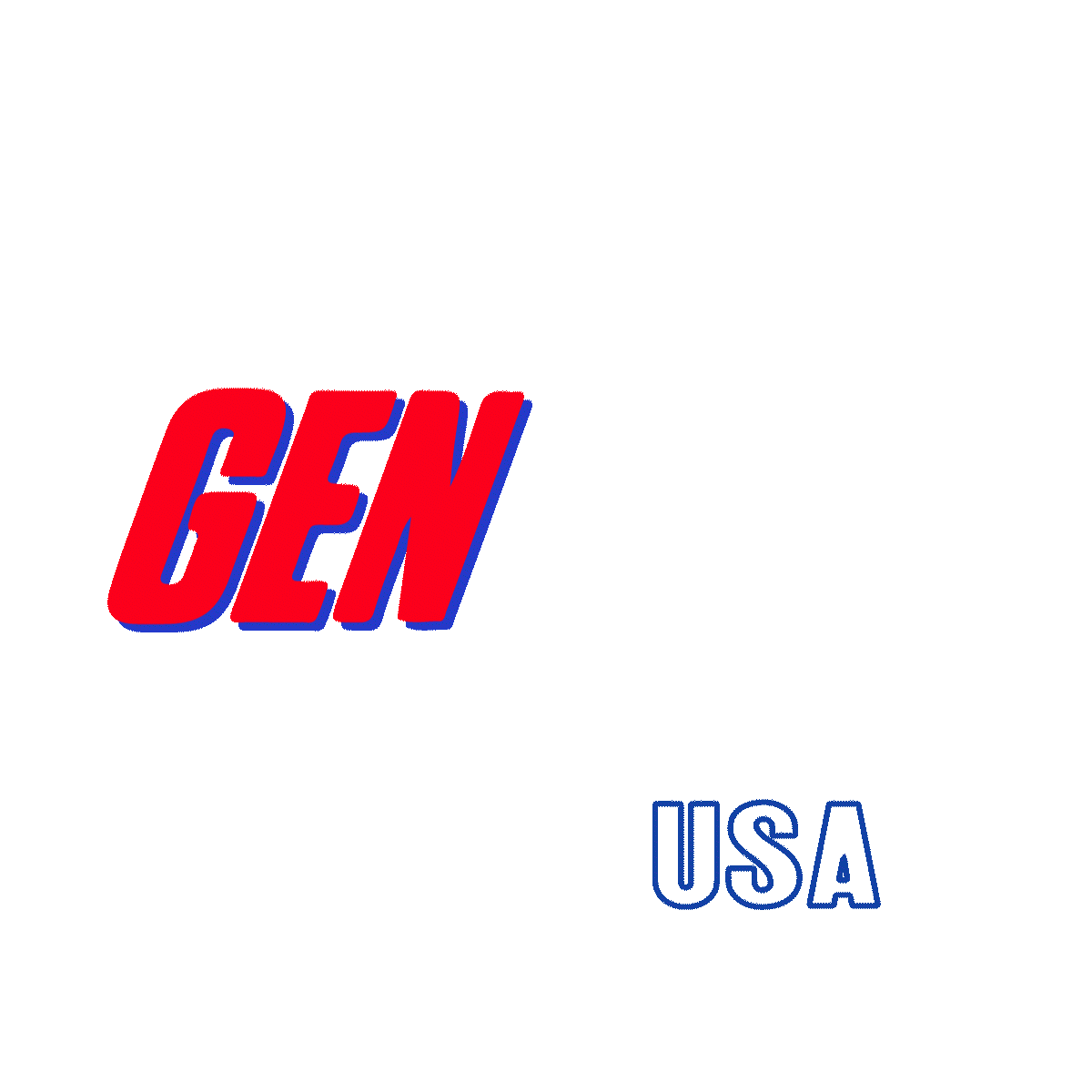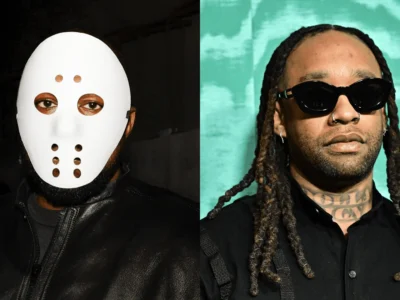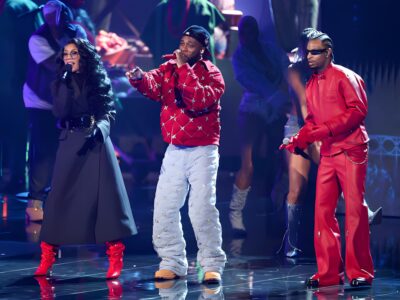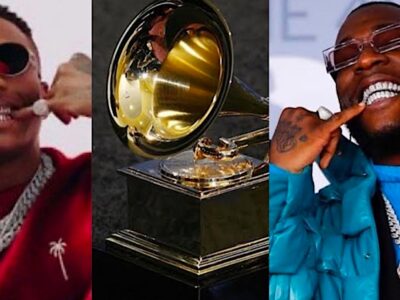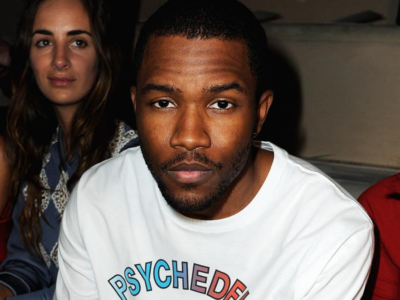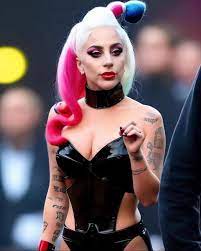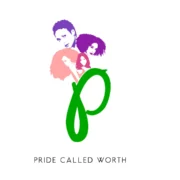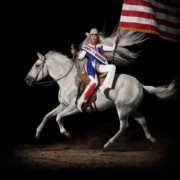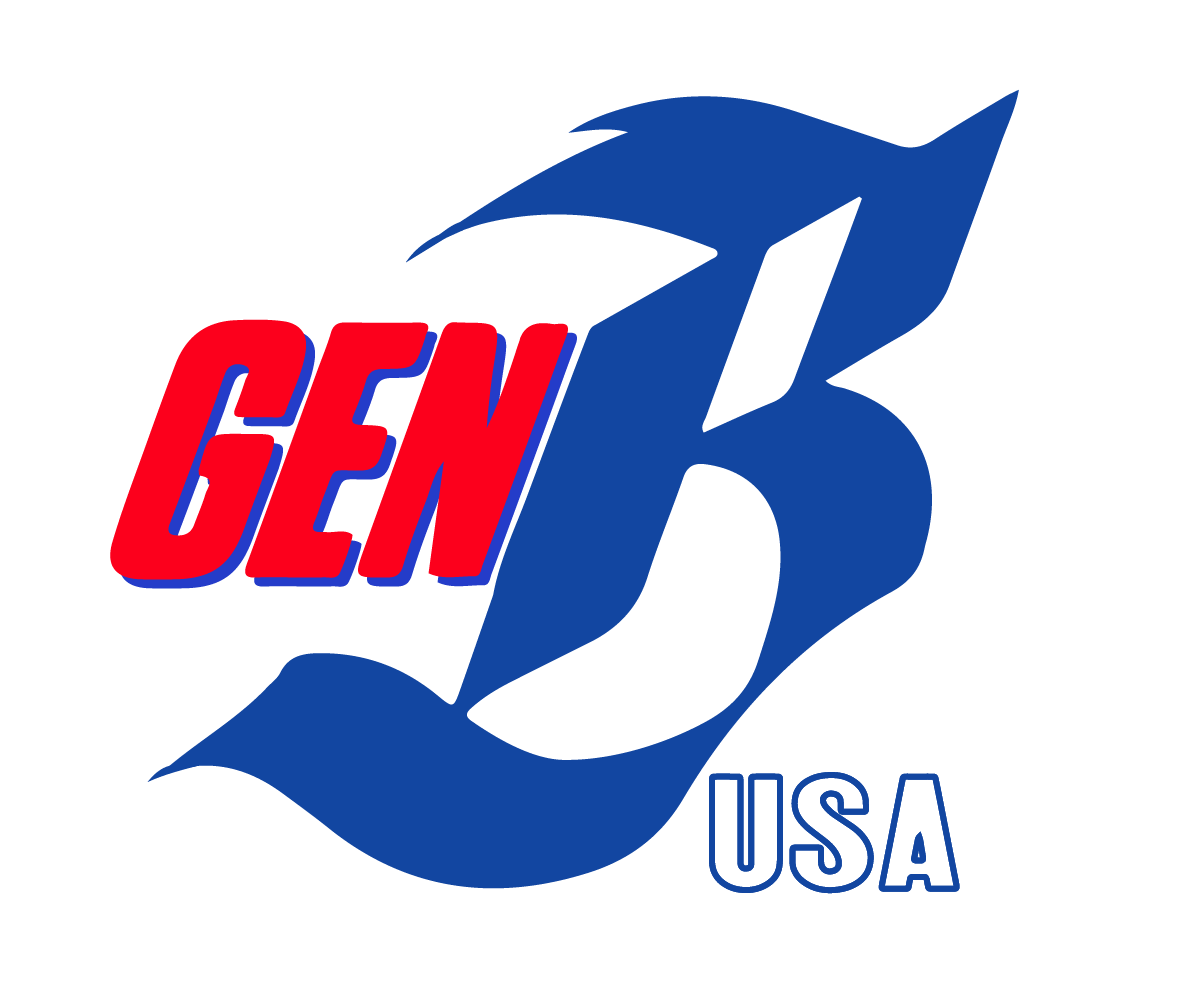Generation Black TV - Live
--- Main Blog Content Below ---
Kanye West: Is Making Music a Business?
It was getting later than expected. My eyes were starting to hang as I entered another hour of waiting for Kanye to perform his new album. Donda’s release was no stranger to controversies and setbacks — just like every album from Mr. West. I should have expected such a long wait.
The album finally started playing as Kanye, dressed in all red, wandered aimlessly around a full Mercedes-Benz Stadium. The longer the performance went on the more I was shocked. Not because I was hearing anything great, but the exact opposite. The rapper presented us with an unfinished demo. The show finished and I hit the hay feeling let down.
I woke up the next day and went to work — the album still not officially released. As I delivered pizza, I pondered what would happen if I did something like Kanye did. Imagine a customer ordered a pizza and I said “it’ll be with you in 20 minutes sir!”. I turned up a couple of hours late, pizza box in hand. Annoyingly late but it’s here. Only for the customer to open the box to find some half-baked dough with cheese and tomato lazily slapped on top. I’m sure the customer wouldn’t order from my pizza place again.
A second Donda listening party took place at the Mercedes-Benz Stadium. This time I went to bed early.
A capitalist billionaire like Kanye should appreciate the comparison between the musician/fan relationship and the business/consumer relationship. Music has provided him the platform to hoard this amount of wealth, so why shouldn’t he treat it like a business? How come it always seems like his albums are delayed but his sneakers aren’t
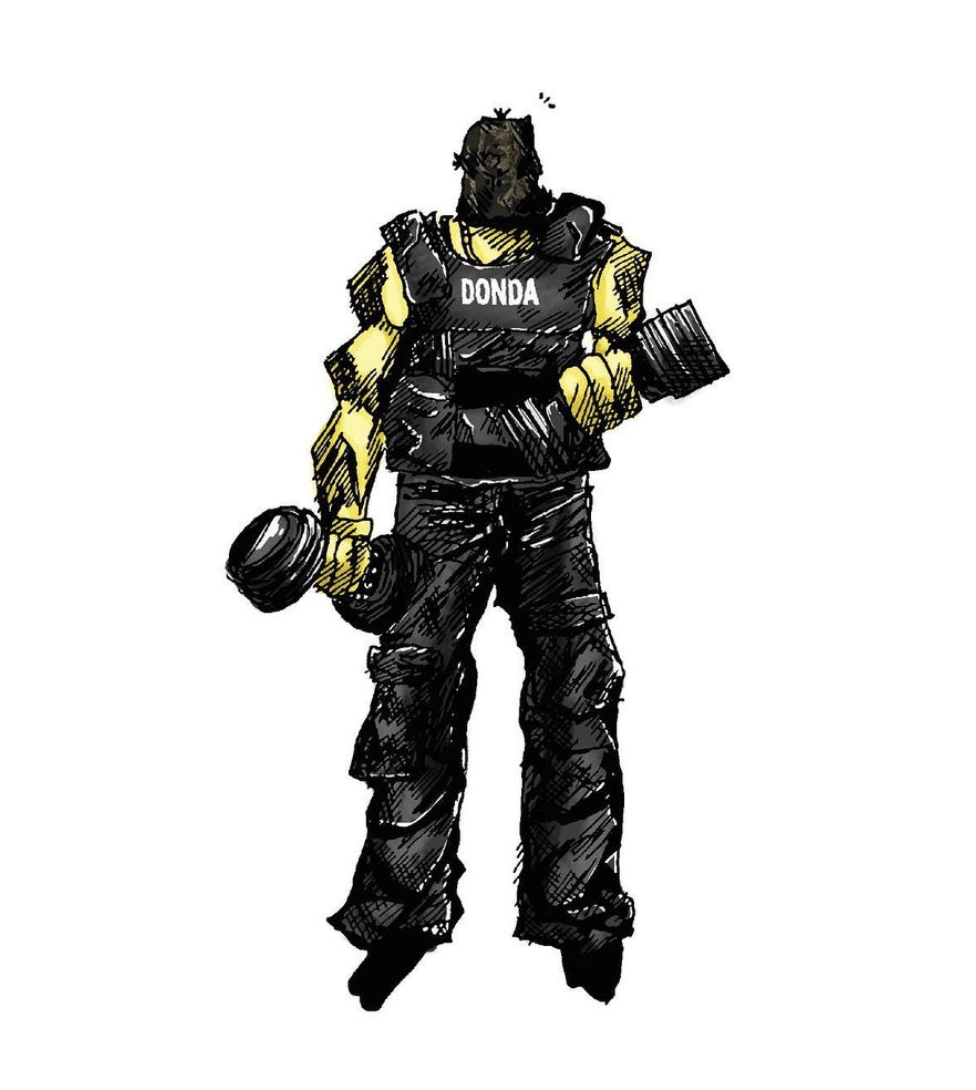
ART BY IG: @ourdreamsdieyoung
Interestingly, Yeezy was valued at between $3.2 billion to $4.7 billion while his entire music catalog is only valued at $110.5 million (source: Bloomberg). If West implemented a similar technique of releasing Yeezys as he did albums, I’m sure this would not be the case.
It’s no secret artists, nowadays, make most of their money from merchandise, live shows and other business ventures. However, does Kanye only care about the sanctity of his word when money is involved? After all, he made $12 million from the first two Donda listening parties (source: Billboard). A more cynical man may say this was all done on purpose.
I like to believe this isn’t the case though. With the Yeezy brand, he has Adidas looking over his every move — making sure he doesn’t slip up. If he does, they’ll catch him. When it comes to his music, he’s his own boss after creating G.O.O.D. Music back in 2004.
In his debut album, College Dropout, his disdain for working for a manager at GAP became clear on songs like Spaceship: “If my manager insults me again / I will be assaulting him”. However, it’s coming more apparent that maybe this is a dynamic that he benefits from. We all hate our boss… until we need one.
In saying this, it’s widely accepted that labels can obscure some artists’ careers. Cash Money Records is a prime example of a label standing in the way of great art being made. Back in 2015, Lil Wayne filed a lawsuit against Cash Money due to the delay of Tha Carter V as well as a failure to pay the rapper $8 million. After a three-year court battle, Wayne reached a settlement agreement with Cash Money Records. Giving the rapper ‘well over’ $10 million and allowing for the release of Tha Carter V (source: Forbes)
Kanye doesn’t need to put himself in a position to be exploited like that. It’s interesting to observe that the release of Kids See Ghosts (a collaboration project with Kid Cudi) was largely anodyne. Maybe, working with another artist forced him to stick to his word.
West had been live-streaming the creation of the album on Apple Music. This was the birth of many hilarious memes that blew up Twitter and other social media. From footage of West sleeping to the rapper dressed as your least favourite sleep paralysis demon, the stream had it all.
The third listening party was coming up and images of Kanye’s childhood home being built inside the stadium leaked. This album launch was getting more ridiculous by the second. Only for him to ramp up the absurdity to another level.
While I was sleeping, he performed the album to a sold-out stadium for the third time. This time bringing out freshly canceled DaBaby and the controversial figure Marilyn Manson, onto the front porch of his childhood home.
Kanye isn’t an artist like any other, he isn’t here to make numbers up, he’s one of the biggest artists of all time. In which case, maybe he no longer moves like a business but rather an influencer of culture. Sometimes there are individuals who aren’t here to give the people what they want but rather create moments and waves for others to ride on. As is sung in the opening track of Yeezus, On Sight: “Oh, he’ll give us what we need / It may not be what we want”.
Kanye isn’t an artist like any other, he isn’t here to make numbers up, he’s one of the biggest artists of all time. In which case, maybe he no longer moves like a business but rather an influencer of culture
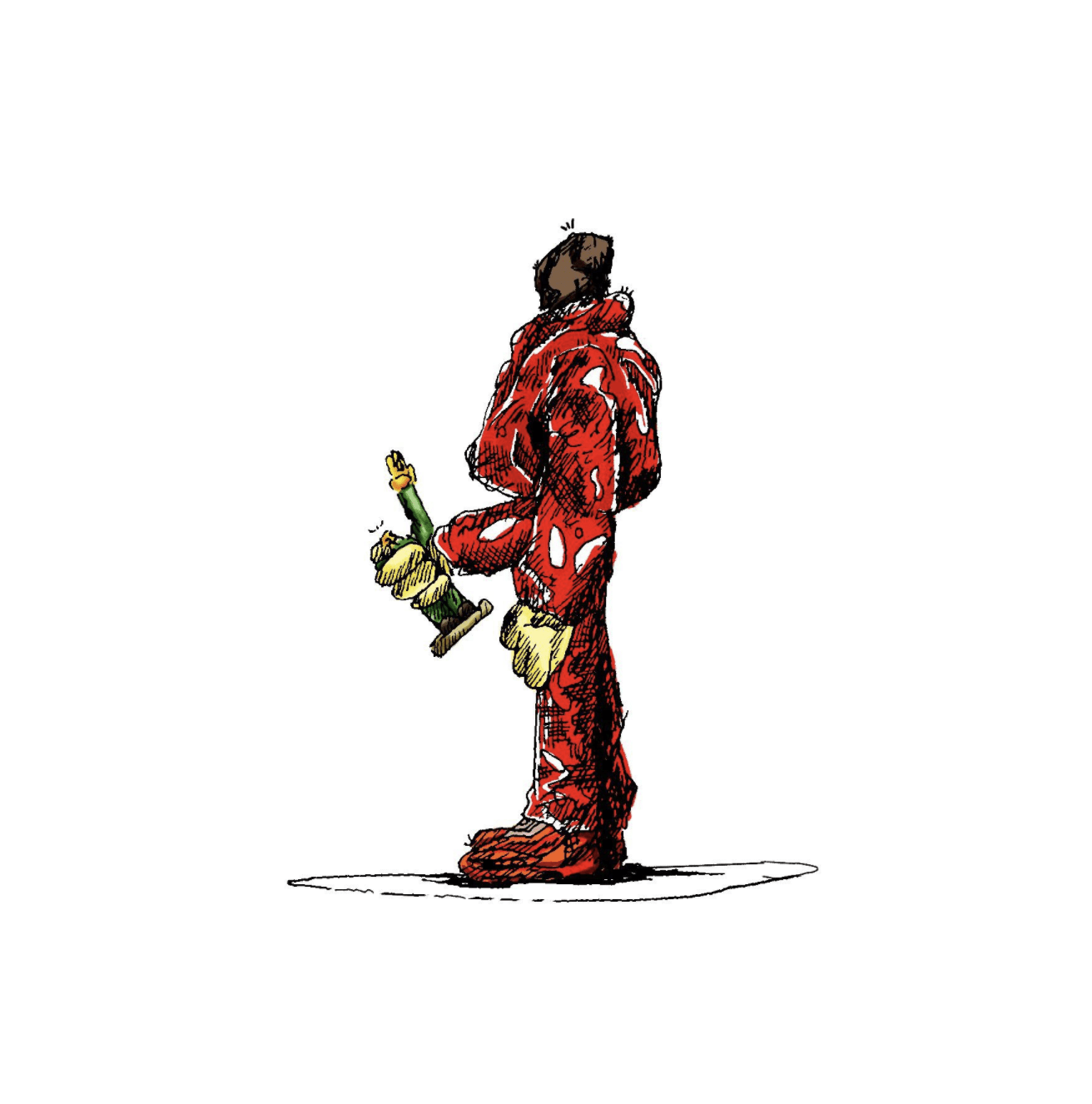
ART BY IG: @ourdreamsdieyoung
He may not be giving us a profound piece of technology or breaking boundaries with what he’s doing but he is entertaining. The memes from his live stream, the shock of the guests at the third listening party and everything in between was a joy to watch. Even if it was a bit of a car crash. We were entertained and he still hadn’t released any music yet.
The same cannot apply for my pizza place. No pizza chain can fail to deliver its product while still moving culture. Sure, the Twitter account could make some good memes but if their product isn’t provided no one will care. This is one huge flaw in viewing the relationship between a musician and a fan as a business/consumer relationship.
After what felt like years, the album finally dropped. Ironically, it was perfect timing as I was about to set off on a long car journey. I threw myself into my car and opened Spotify. All of my frustrations, rants and anger disappeared when confronted with Donda ready to stream. This excitement is what music is all about.
That is the fundamental difference between a business interacting with its consumers and an artist providing for their fans. It’s art.
Often, we can get too obsessed with the business aspect of music. How many streams has the album got? What sales records did it break? How much will concert tickets cost? When really the reason we all love music is the music itself. The feeling of connecting to a piece of art, for me, is the purest form of enjoyment. Anything business-related is secondary.
If a pizza was delivered later than ever expected but gave me the same feeling that music can, I wouldn’t complain too much. That’s the thing though, it can’t. That is the fundamental difference between a business interacting with its consumers and an artist providing for their fans. It’s art.
That being said, Kanye’s behaviour should not be used as a manifesto for up-and-coming artists. It does not teach the lesson that you can continuously fail to deliver on promises — this could destroy a smaller artist. Rather, it shows that once the circus is over, the crowd has gone home and the magician has packed his bags, the real show begins. Whether or not the fans are watching, great art is great art and it will always prevail.
